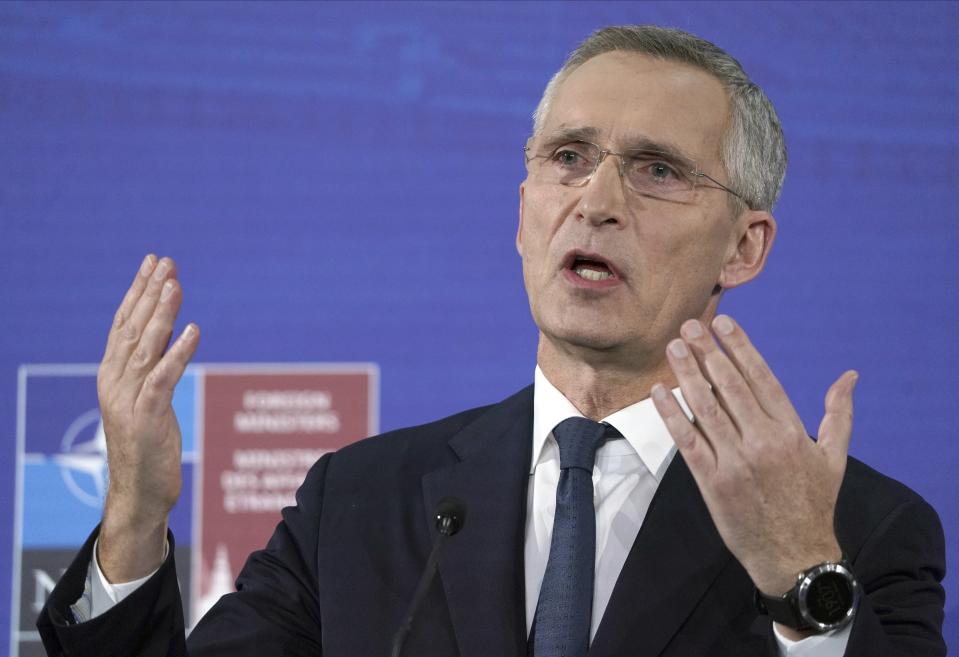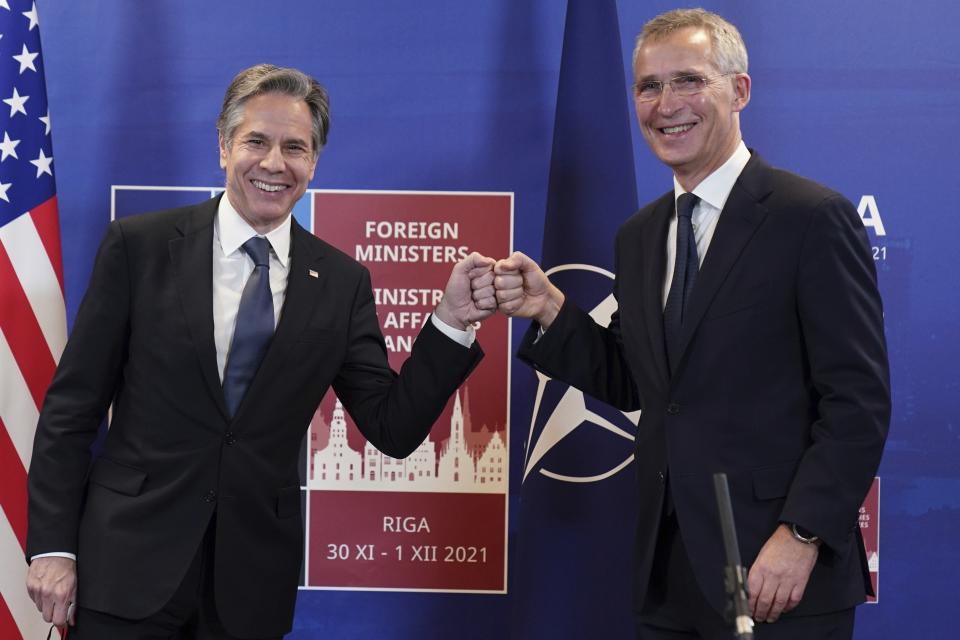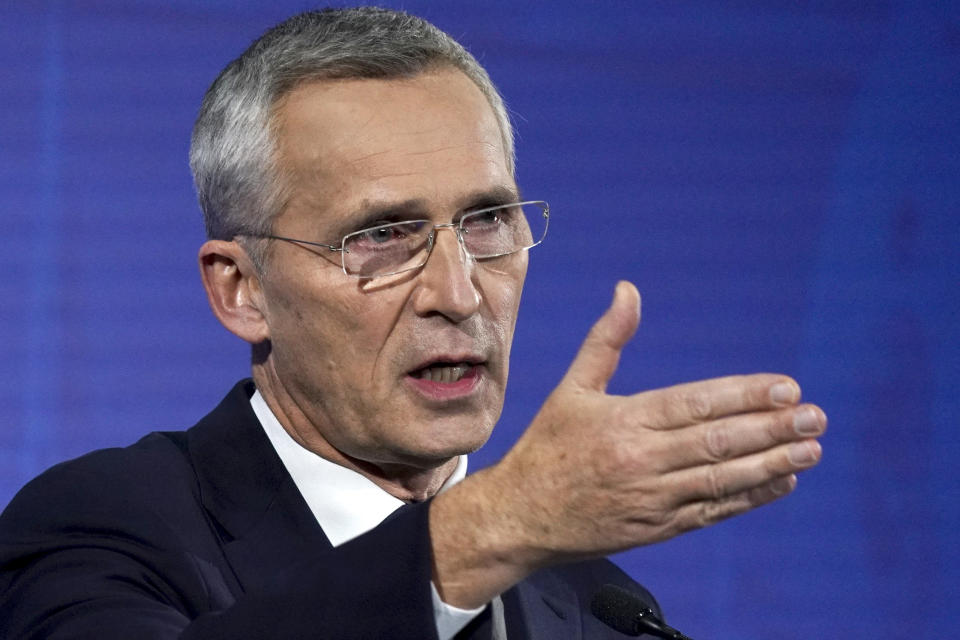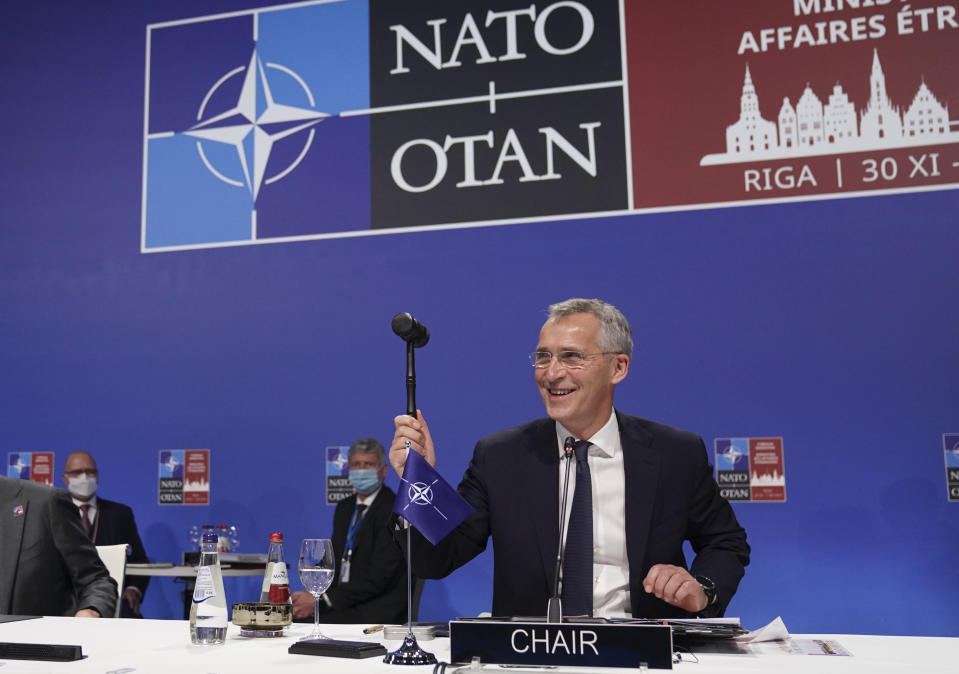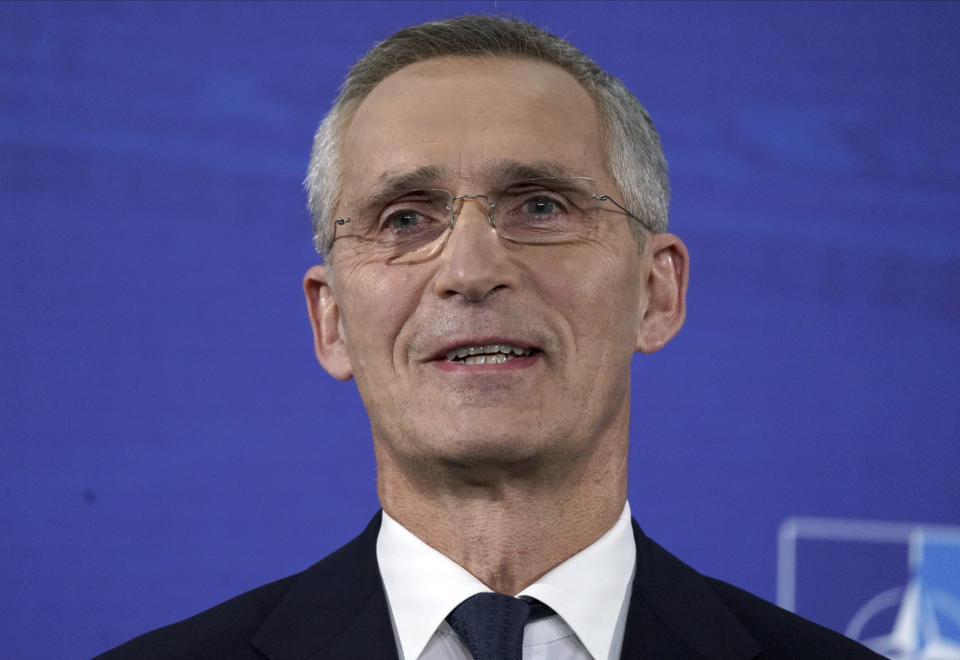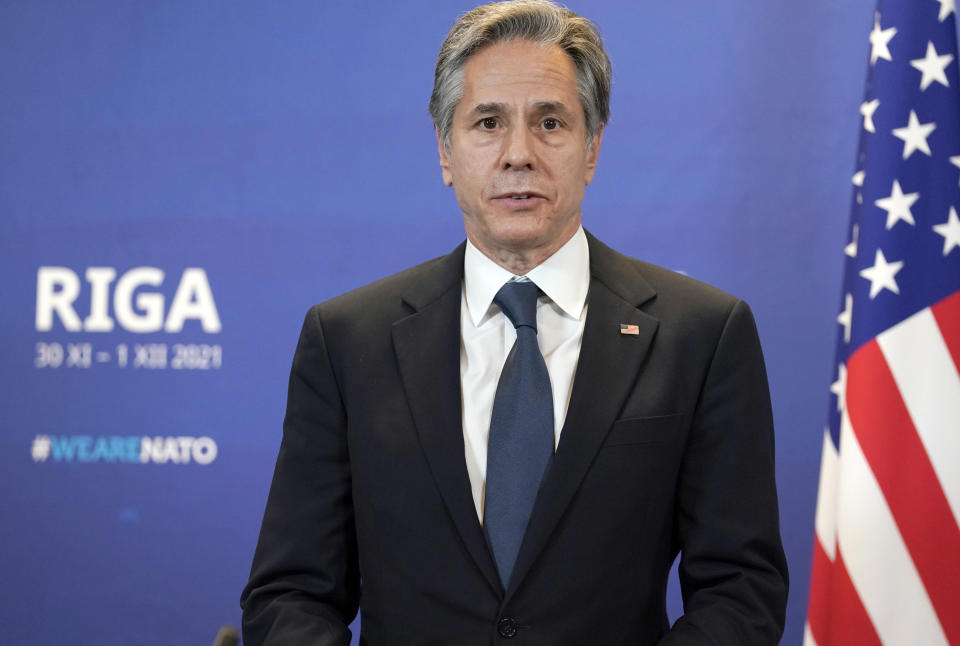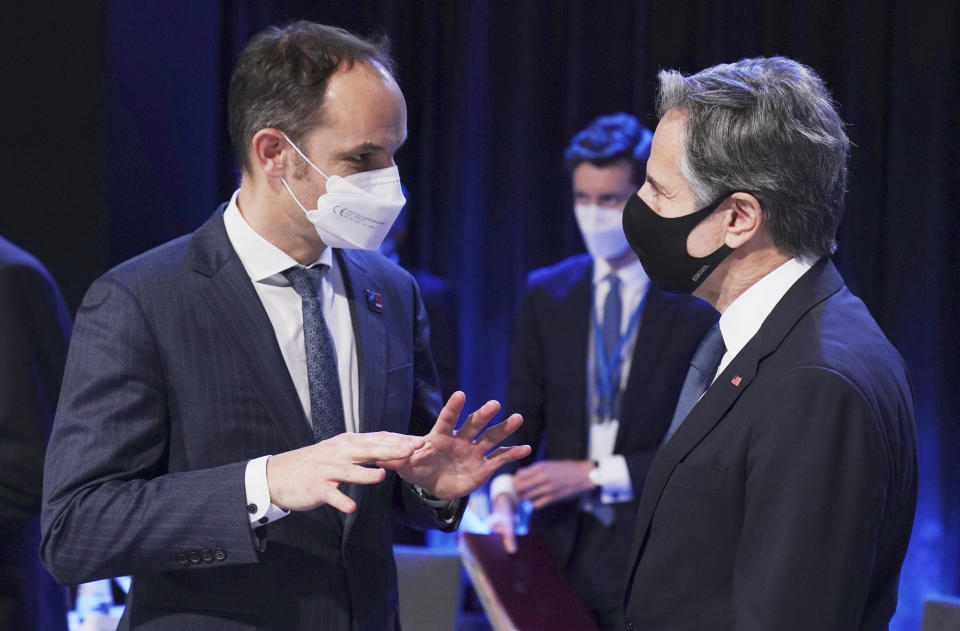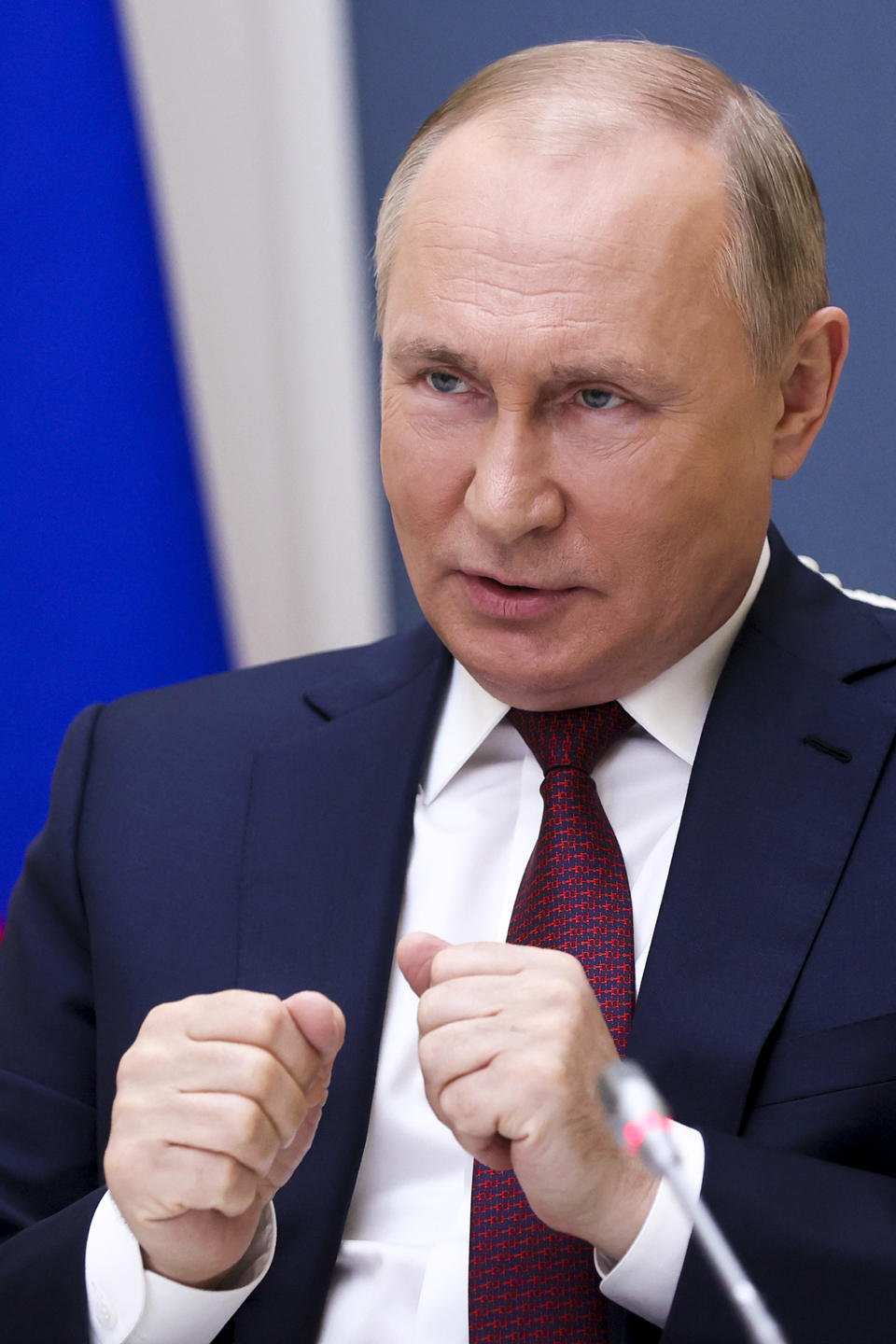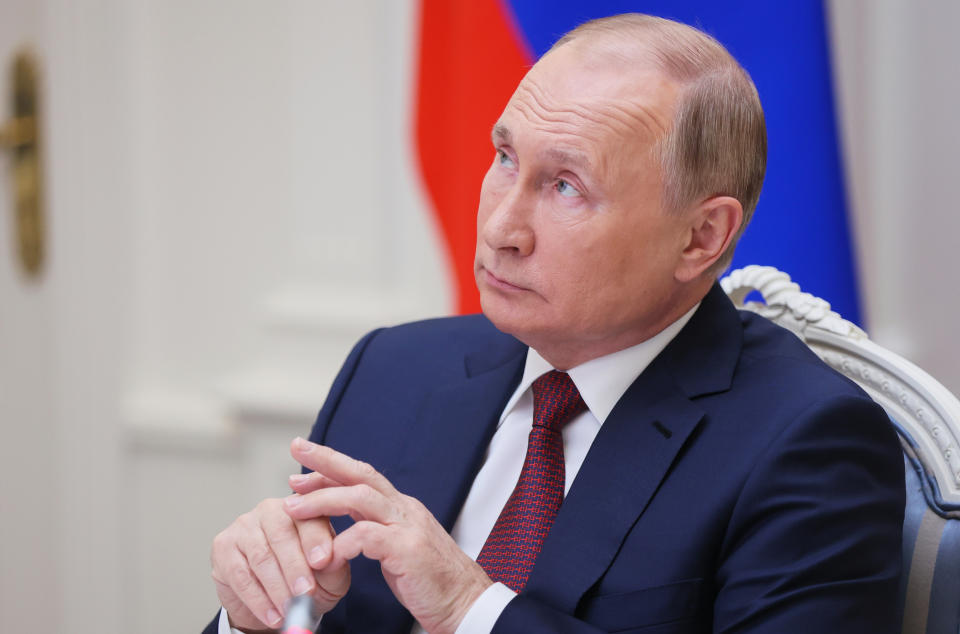NATO chief says allies must prepare for the worst in Ukraine
RIGA, Latvia (AP) — NATO Secretary General Jens Stoltenberg warned Tuesday that the U.S.-led military organization must prepare for the worst as concern mounts that Russia could be preparing to invade Ukraine.
NATO is worried about a Russian buildup of heavy equipment and troops near Ukraine’s northern border, not far from Belarus. Ukraine says Moscow kept about 90,000 troops in the area following massive war games in western Russia earlier this year, and could easily mobilize them.
Ukrainian President Volodymyr Zelenskyy said last week that his country’s intelligence service had uncovered plans for a Russia-backed coup d’état. Russia denied the allegation and rejected the assertion that it is planning to invade Ukraine.
“You can discuss whether the likelihood for an incursion is 20% or 80%, it doesn’t matter. We need to be prepared for the worst,” Stoltenberg told reporters in Riga, Latvia, after chairing talks among NATO foreign ministers focused on the threat posed by Russia.
“There is no certainty, no clarity about exactly what are the Russian intentions, and they may actually evolve and change,” the NATO chief continued. Referring to Russia's 2014 seizure of Ukraine's Crimean Peninsula, Stoltenberg added: “They’ve done it before."
The United States has shared intelligence with European allies warning of a possible invasion. European diplomats acknowledge the Russian troop movements, but some countries have played down the threat of any imminent invasion ordered by Moscow.
“We are very concerned about the movements we’ve seen along Ukraine’s border. We know that Russia often combines those efforts with internal efforts to destabilize a country. That’s part of the playbook, and we’re looking at it very closely,” U.S. Secretary of State Antony Blinken said.
“Any renewed aggression would trigger serious consequences,” Blinken warned.
German Foreign Minister Heiko Maas also said that “Russia would have to pay a high price for any form of aggression.”
“NATO’s support for Ukraine is unbroken, and its independence, territorial integrity and sovereignty are not up for discussion,” Maas said. “Honest and sustainable de-escalation steps, which can only go via the route of talks, are all the more important now.”
Russia annexed Crimea in 2014 after Ukraine's Moscow-friendly president was driven from power by mass protests. Weeks later, Russia threw its weight behind a separatist insurgency that broke out in Ukraine’s east.
Ukraine and the West have accused Russia of sending troops and weapons to back the rebels. Moscow denies that, saying that Russians who joined the separatists were volunteers. More than 14,000 people have died in more than seven years of fighting, which also has devastated Ukraine’s eastern industrial heartland, known as Donbas.
A 2015 peace agreement brokered by France and Germany helped end large-scale battles, but efforts to reach a political settlement have failed and sporadic skirmishes have continued along the tense line of contact. Russia has refused recent overtures for talks with France and Germany.
But Russian Foreign Minister Sergey Lavrov said it is NATO that threatens peace in the region.
“Significant units and military equipment of NATO countries, including the U.S. and Britain, are being deployed closer to our borders,” Lavrov said during a news conference in Moscow. He alleged that the West has long provoked Ukraine “into anti-Russian actions.”
Whatever Russia’s intentions, NATO would not be able to provide Ukraine with any substantial military support in time to make a difference against Russian forces, so economic measures like Western sanctions are more likely to be used to inflict a financial cost on Moscow.
Stoltenberg underlined that Ukraine is not part of the military organization and so cannot benefit from the collective security guarantee available to member countries.
“We have different options, and we have demonstrated over the years in reaction to Russia’s previous use of military force against Ukraine that we can sustain heavy economic and financial sanctions, political sanctions,” Stoltenberg said.
Meanwhile, Belarusian Defense Minister Viktor Khrenin announced that Belarus will conduct joint military drills with Russia “to cover the southern borders,” a reference to the border area near Ukraine, according to Belarus state news agency Belta.
Khrenin did not say when the exercises would take place but noted that they won’t be as large-scale as the joint drills Belarus and Russia held in September.
___
Cook reported from Brussels. Dasha Litvinova in Moscow, Geir Moulson in Berlin and Jill Lawless in London contributed.

